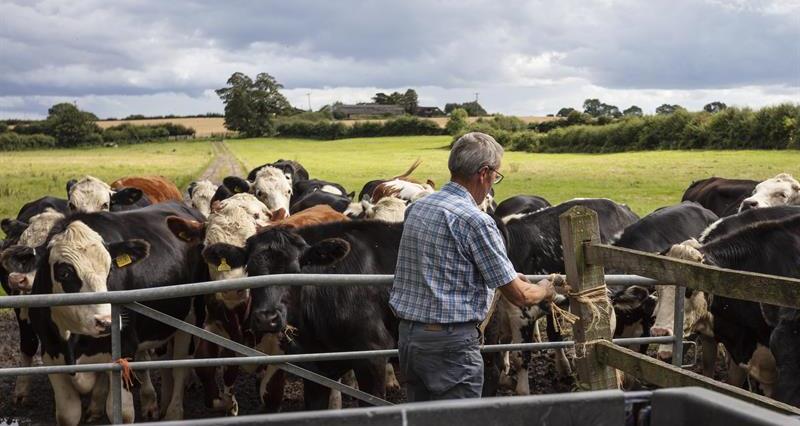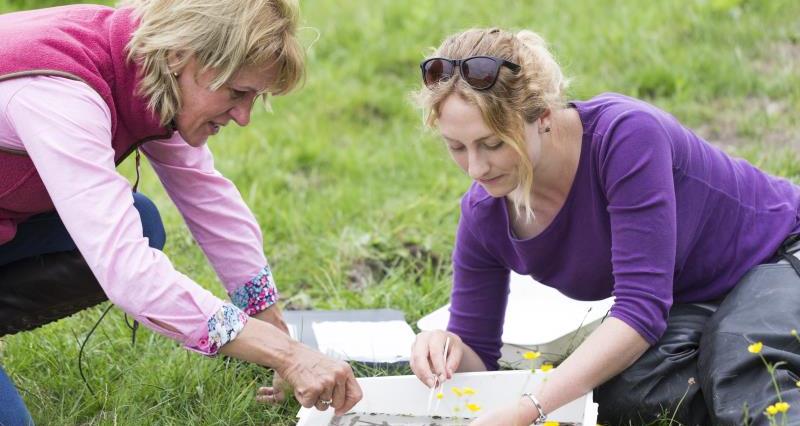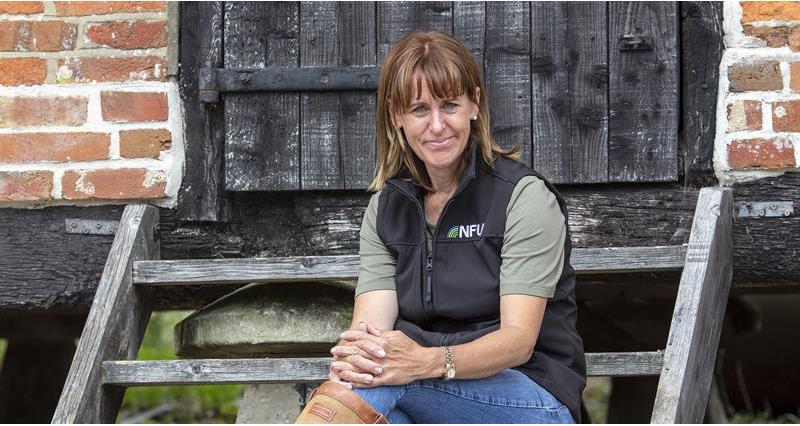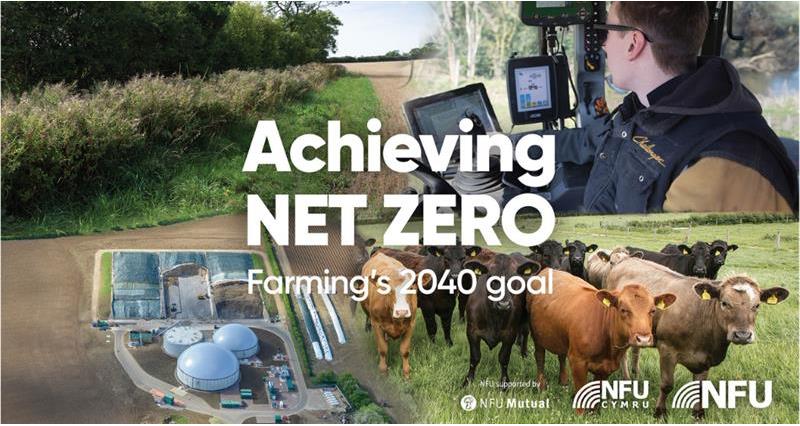The publication was launched with an event in Parliament on Tuesday 22 October, and includes perspectives on how the UK can deliver on net zero and nature restoration in a way that builds broad public support.
The intention of the IPPR and WWF is to 'broaden and enrich the conversation across all parties about how we invest, innovate, and provide the support to business and workers that ensure we maximise benefits of the green transition for the UK'. It will be submitted to the IPPR Environmental Justice Commission as evidence.
Read Mrs Batters' contribution below - you can also download the whole document here.
Our vision is to show how agriculture will contribute to eradicating Britain’s contribution to climate change by the middle of the century, meeting the NFU’s ambition for a net-zero contribution to climate change across the whole of UK agricultural production by 2040.
We want to meet ‘net zero’ by reducing agricultural production emissions and delivering negative emissions in the UK rather than by exporting food production, and the associated greenhouse gas emissions, to other countries. We propose a combination of policies and practices focused on three key areas:
- Improving farming’s productive efficiency (including the health and vitality of animals and plants).
- Targeting measures to increase and manage carbon storage on UK farms.
- Boosting production of land-based renewable energy, including bioenergy for processes linked to carbon capture, storage and utilisation, to generate credits for GHG emissions avoided and GHG removal.
We aim to build some redundancy into our aspirations, recognising that some measures may not deliver their planned emissions reductions in full: a ‘portfolio’ of complementary measures is the best approach. Now is the right time to set challenging goals, consistent with the high standards of British production, welfare and environmental stewardship, as farmers and growers adjust to a new domestic agricultural policy.

There are clear environmental and economic imperatives for action. The pace of decarbonisation of the entire UK economy is going to quicken towards net zero over the next few decades. As an industry, we must respond to the scientific evidence of the impacts of climate change, and the first-hand experience of our farmers and growers who have weathered extremes of cold, drought and flood in recent years.
The IPCC’s report on Climate Change and Land highlights that food security has already been affected: agriculture is on the front line of climate change impacts, as well as potentially contributing part of the solution. We therefore need a convincing set of actions for the 2020s, as well as in the longer term, to demonstrate that we mean what we say.
We’ll need to work in partnership with government and other stakeholders to enable UK farming to meet our net-zero aspiration. For the NFU, any Green New Deal will need to address a number of key points:
- Boosting productivity across all farm sectors will require policy measures not just from Defra, but also BEIS, HM Treasury and other government departments.
- Enhancing carbon storage in soils and vegetation requires both the agriculture industry and the environmental NGO community to advocate for carbon pricing to drive multiple agri-environmental benefits.
- Britain must also develop a strong domestic bio-energy chain in order to have the longer-term potential for future GHG removal, as carbon storage and through a variety of bio-based products.
This is a national aspiration, not an expectation that every farm will be able to reach net zero. Every farmer will start this journey from a different place with a unique action plan, but no farmer should be left behind. On my own farm the most likely source of emissions are beef cattle and pasture, so my personal journey towards net zero will start by benchmarking the performance of my livestock, improving the health status of my cattle, growing and extending my hedgerows, and managing my grassland to increase carbon storage.

Above: NFU President Minette Batters pictured during the inaugural NFU Farm Nature Discovery event
A productive, profitable agricultural sector has wider public benefits. British farmers and growers are an important part of rural economies, providing jobs and driving growth in diversified industries. Farm businesses have an irreplaceable role in looking after our cherished natural environment. They have a unique perspective on the farmed environment because they see and manage the whole picture. Last year I hosted the inaugural NFU Farm Nature Discovery event, where a group of wildlife recorders spent time surveying my farm. The sheer number of different species of plants and wildlife recorded was a revelation to me and to others.
Now is the right time. We want to leave our farms and the farmed environment in a better condition for the next generation of farmers and consumers. Our journey towards climate neutrality must be made together. If we work together, learn from each other and share our ideas I truly believe we can reach our net-zero aspiration, and show the world that it can be done.
Click here to download the NFU's Achieving Net Zero report
More from NFUonline:

